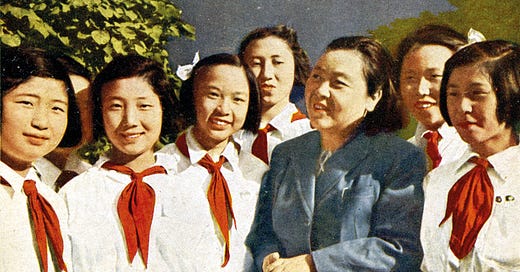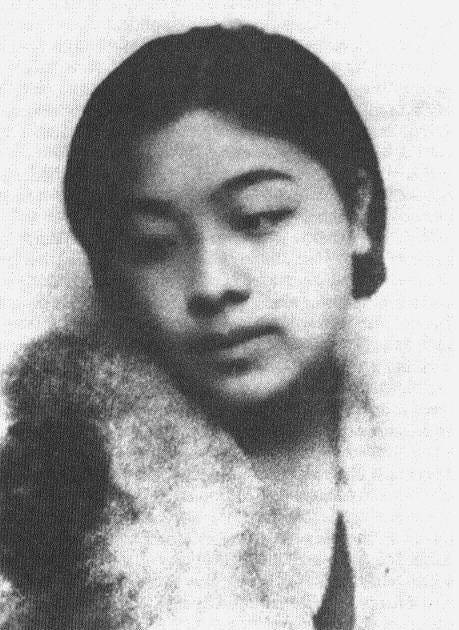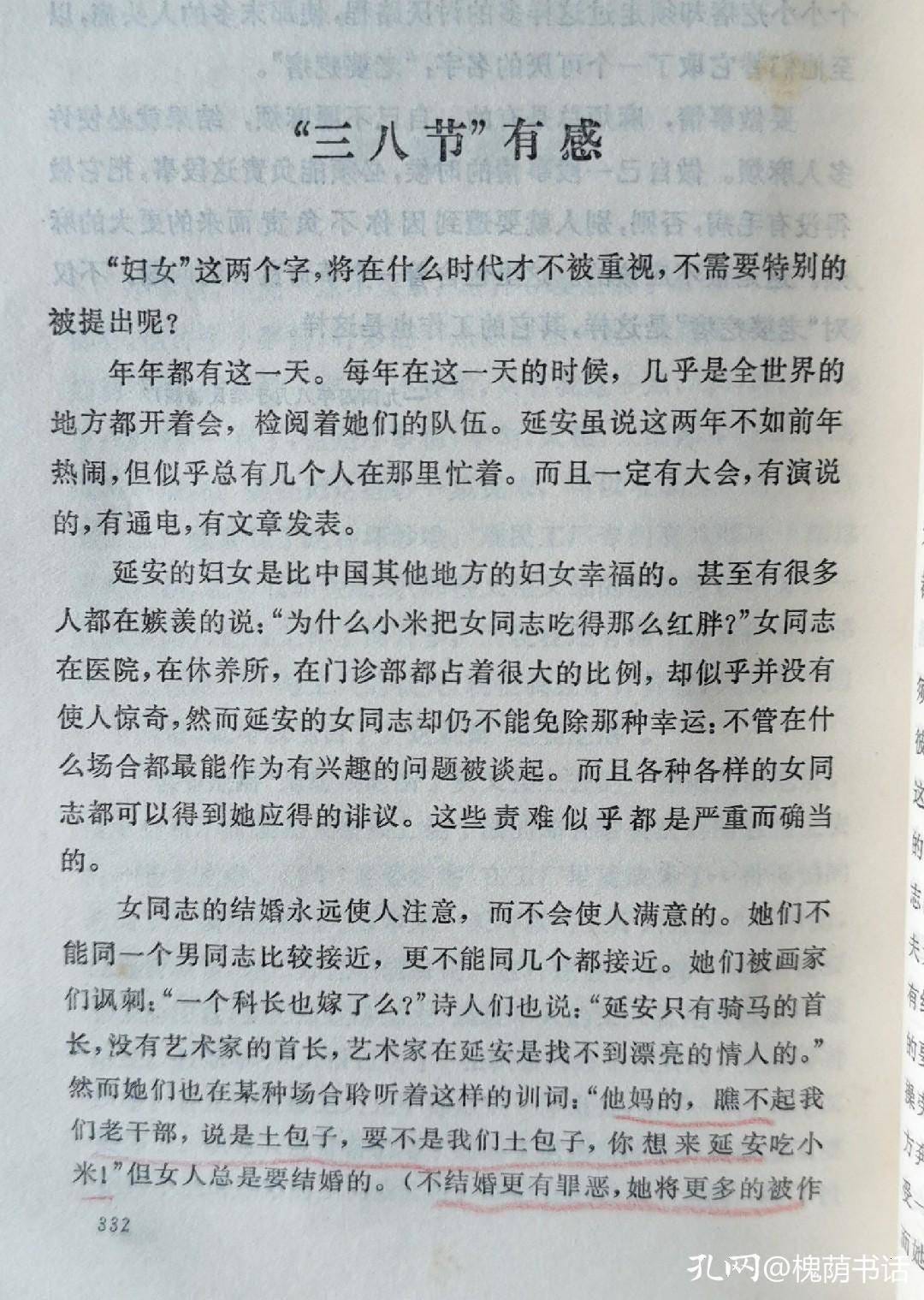Today, we’ll be embarking on a fascinating journey through the life and legacy of Ding Ling, a prominent figure in Chinese literature whose contributions have left an indelible mark on the literary landscape.
The Chinese activist Ding Ling with young pioneers, c. 1950. Source: The Spectator; Bridgeman Images.
Born in 1904, Ding Ling’s journey traversed the tumultuous landscape of early 20th-century China, leaving an indelible mark on both literature and society. Ding Ling’s early years were marked by a thirst for knowledge and a passion for writing. Despite the constraints imposed by traditional Chinese society, she pursued education and literature with fervour, eventually becoming one of the most prominent voices of her time.
Younger portrait of Ding Ling. Source: The China Project
Her literary works, spanning various genres including novels, short stories, and essays, captured the essence of the human experience with remarkable insight and sensitivity. Through her writing, Ding Ling delved deep into the complexities of gender, class, and societal norms, challenging the status quo and advocating for social change.
One of Ding Ling’s most notable contributions to feminist discourse is her seminal work, "Thoughts on March Eighth." This groundbreaking essay, written in 1942, boldly articulates the struggles and aspirations of Chinese women in the context of a rapidly changing society. Drawing inspiration from the international women’s movement and Marxist ideology, Ding Ling articulated a vision of gender equality and liberation that resonated with countless women across China.
Source: “Thoughts on March Eighth” in original Chinese text https://www.sohu.com/a/528146537_200419
"Thoughts on March Eighth" not only served as a rallying cry for women’s rights but also sparked nationwide debates on gender equality and social justice. Its enduring legacy continues to inspire feminists and activists around the world, underscoring the importance of intersectionality and collective action in the fight for gender equality.
Despite facing persecution and censorship from the authorities, Ding Ling remained steadfast in her commitment to social justice and literary excellence. Her unwavering courage and resilience in the face of adversity serve as a testament to the power of literature to effect meaningful change in society.
In addition to her literary contributions, Ding Ling’s life serves as a testament to the transformative potential of individual agency and collective action. Her fearless pursuit of truth and justice continues to inspire generations of writers, activists, and thinkers to challenge injustice and envision a more equitable world.
Further reading:
Lia Warner on Ding Ling’s Feminism here.
The Translated Chinese Fiction Podcast Episode on Ding Ling’s other seminal work The Diary of Miss Sophie, listen here.
James Carter on Ding Ling’s critique of the Chinese patriarchy here.






